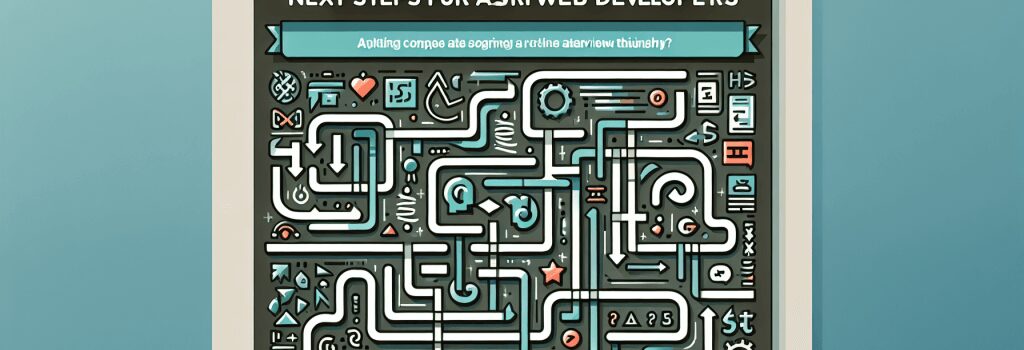After the Interview: Next Steps for Aspiring Web Developers

Follow-Up Strategies
Sending a Thank-You Email
After completing an interview, it’s pivotal to send a well-crafted thank-you email to the interviewer within 24 hours. This small gesture demonstrates your appreciation for the opportunity and reinforces your interest in the position. Ensure that your email is personal, reflecting on a particular discussion point from the interview, which will help strengthen the connection with the interviewer.
Reflect on the Interview
Post-interview reflection is an invaluable step for any aspiring web developer. Take the time to assess both your strengths and areas of improvement during the interview. Consider the questions that challenged you the most and seek additional knowledge or practice in those areas. This reflection will not only prepare you for future interviews but also contribute to your ongoing development as a web developer.
Continue Learning and Building Projects
While awaiting feedback, continue advancing your skills in HTML, CSS, JavaScript, PHP, and WordPress. Working on personal or open-source projects can significantly enhance your portfolio, showcasing your commitment and passion for web development. Remember, every project is an opportunity to learn something new and improve your problem-solving skills.
Networking and Community Engagement
Engaging with the web development community can open doors to new opportunities and valuable learning resources. Platforms like GitHub offer a space to collaborate on projects and receive constructive feedback from peers. Additionally, participating in web developer forums and attending meetups (virtually or in-person) can broaden your professional network and keep you informed about industry trends.
Prepare for Potential Follow-Up Interviews
Some companies require multiple interview rounds before making a hiring decision. It’s essential to be prepared for technical assessments or practical tasks in the following stages. Brush up on your coding skills, especially focusing on projects that demonstrate your capability with the stack you’re interviewing for (HTML, PHP, CSS, JS, WordPress).
Managing Rejection
If you’re not selected for the position, view the experience as a learning opportunity. Politely ask the interviewer for feedback to understand areas for improvement. This feedback can be incredibly valuable for your personal growth and prepare you more effectively for future interviews.
Setting Long-term Goals
Whether you secure the job or not, setting long-term career goals is crucial. Identify the areas within web development you’re most passionate about and seek opportunities that align with these interests. Continuously update your skills and knowledge base to remain competitive in the fast-evolving web development landscape.
By following these steps, aspiring web developers can navigate the post-interview phase constructively, whether it leads to immediate employment or serves as a stepping stone towards future opportunities.


